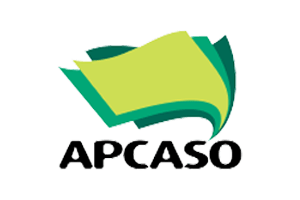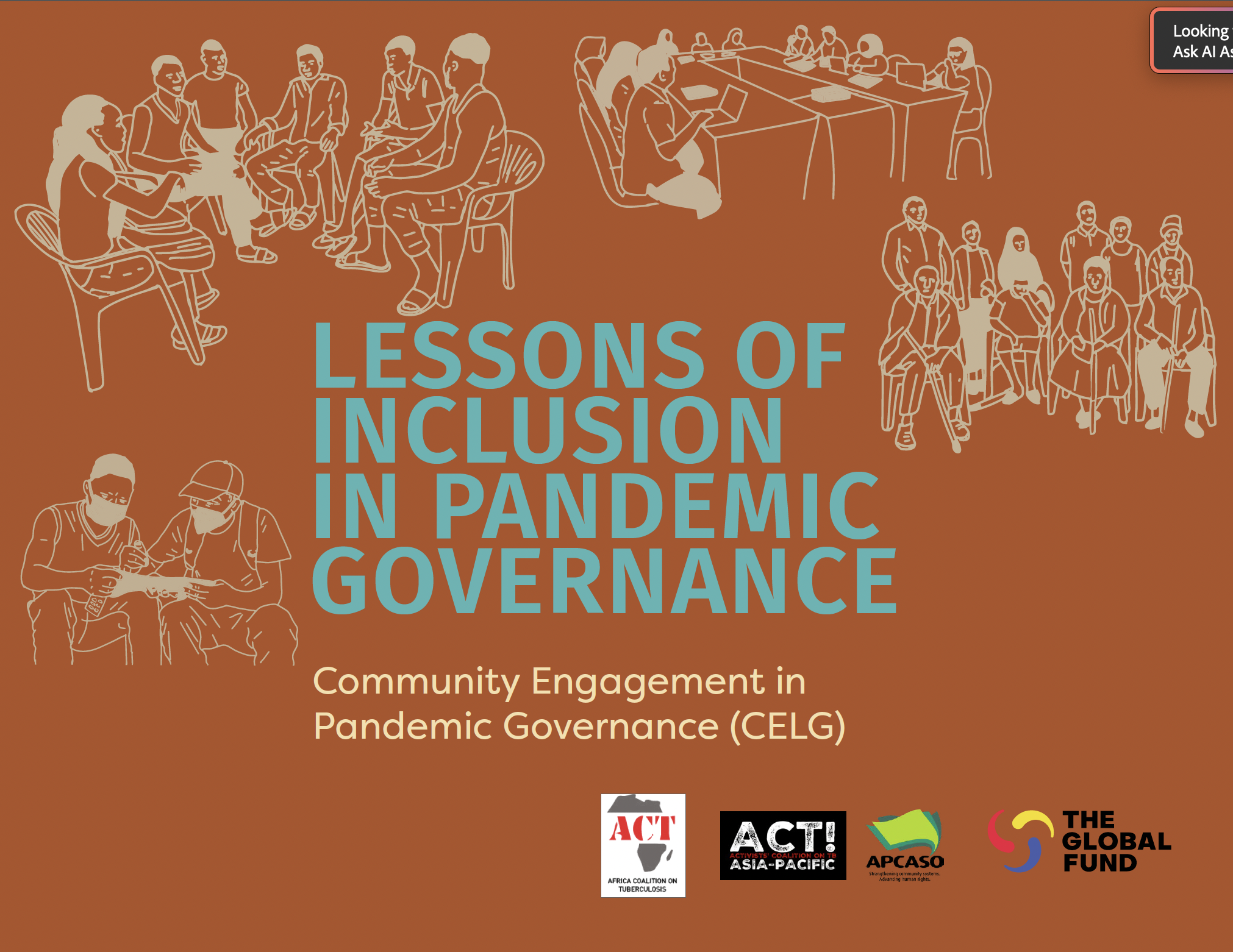- Version
- Download 2
- File Size 3.79 MB
- File Count 1
- Create Date June 12, 2024
- Last Updated June 12, 2024
Lessons of Inclusion in Pandemic Governance - CELG
The CELG project sought to develop and test community engagement strategies and approaches that enable LMPs as part of TB networks to influence COVID-19 and PPPR decisions at the country-level. Its activities can be summarised into two:
- Conduct community engagement assessments and mapping out LMP organisations, TB community-led organisations and civil society, and existing (if any) COVID-19 or PPPR processes and platforms at the country level wherein LMP can engage.
- Develop a costed community engagement plan that identifies the strategies that will build and strengthen the engagement of LMPs in the TB and COVID-19 decision-making processes
Eight countries undertook the community engagement assessments, namely Cameroon, Kenya, Mozambique, Nigeria and Sierra Leone in Africa; and Cambodia, Indonesia, and the Philippines in Asia-Pacific. Each country were designated with a specific LMP, defined by each country’s context of their extreme vulnerability to TB and COVID-19. During data gathering, surveys, focus groups, and individual interviews were conducted among LMPs themselves as well as among service providers. Results in the assessment highlighted the vulnerabilities of LMPs to TB, COVID-19, and other pandemic threats because of their living conditions and overall situation, high risk of infection, and the little to no access to information and care both during COVID-19 and to TB. LMP identified aspects of their marginalization, discrimination, and economic adversity that supersede health threats in their situations. In many cases, these vulnerabilities become limiting factors in their capacity to mobilise and engage as a community, as for example when they had to prioritise going to work over attending meetings and training, or when they are too remotely located that even the logistics of coming together already presents significant challenges.
One marker of vulnerability for LMPs is the scarcity of existing data on TB prevalence or even general health risks among some populations. With the lack of prioritizing these populations in public health care planning, the health situation of LMPs remains unseen and unrecorded. Public and available data are either anecdotal or outdated, which could not be utilized to design health programmes that would specifically cater to the needs of these populations. Hence, these assessment has enabled and initiated data gathering on these groups that could become a basis of further attention on their situation.
The recommendations from these country-level assessments were utilized to guide the development of community engagement plans. A number of consultations were conducted among LMPs as well as dialogues with government representatives and other decision makers to develop these costed plans that seek to focus on six areas of community engagement: (i) information and knowledge-sharing; (ii) consultations; (iii) collaboration; (iv) empowerment; (v) participation; and (vi) community leadership. Each country’s costed community engagement plans sought to improve the inclusion of LMP in the TB and COVID-19 programming and policy-making, and improve their participation in the decision-making processes. Succeeding activities were conducted by country implementers based on these plans, and these will be presented in the succeeding sessions.
To consolidate the learning and to share them among country implementers, a regional CELG Knowledge Hub was also established. The Hub is currently hosting a website, https://celg.apcaso.org, which holds a repository of various reports and tools that were produced by its country implementers. The Hub also hosted a series of LESSONS webinars, which aimed to provide an orientation about pandemics among country implementers, and learn among each other’s implementation of community engagement plans. The Hub also tried to facilitate discussions among the eight country implementers to further expand the understanding about community engagement of LMP in the context of pandemics.
The next session will highlight each country’s community engagement plans and related activities, and share the lessons that country implementers have learned throughout the implementation process of their engagement plan activities.

